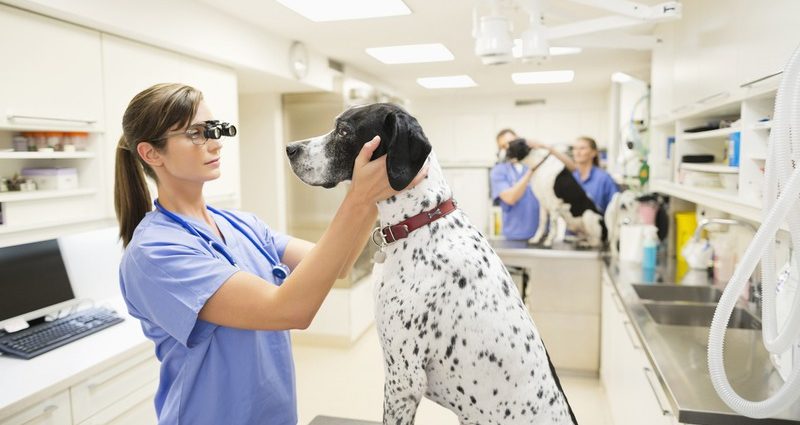Finding the right vet clinic for your beloved pet goes beyond just choosing the closest one to your home. It’s about finding a place where your pet feels comfortable and you have confidence in the level of care they will receive. Let’s look at the essential traits of a vet clinic that can cater to your pet’s diverse needs, ensuring they stay healthy and get the proper care when they need it the most.
1. Personalized and Compassionate Service
As with any other healthcare service, the quality of veterinary care matters significantly. When seeking out a St Louis veterinary clinic, you should look for a team that prioritizes personalized care tailored to your pet’s unique health needs. A good clinic will not rush you through appointments but will take the time to listen to your concerns and thoroughly examine your pet.
2. Facilities and Services Provided
Assessing a clinic’s facilities often gives insight into the standard of care they can provide. A top-notch vet clinic should be clean, well-organized, and equipped with the necessary tools to perform a variety of medical services. A welcoming waiting area and a comfortable environment where pets can be at ease before and after appointments are also important features.
Proper medication is an integral part of pet recovery and ongoing health. An established vet clinic might have an in-house veterinary pharmacy or a reputable partnership with one.
3. In-House Diagnostic Equipment
Having in-house diagnostic equipment is a plus because it can significantly speed up the diagnosis process and start treatment sooner. Some essential diagnostic tools include:
-
Digital X-Rays: Digital radiography allows veterinarians to capture high-quality images of internal structures such as bones, organs, and soft tissues. Digital X-rays offer superior image quality, faster processing times, and the ability to manipulate and enhance images for better visualization and interpretation.
-
Ultrasound Machines: Ultrasound imaging enables veterinarians to visualize internal organs and tissues in real time, providing valuable insights into their structure, function, and pathology. Ultrasound is particularly useful for evaluating the abdomen, heart, and reproductive organs, as well as guiding diagnostic and therapeutic procedures.
-
In-House Blood Work Laboratories: In-house blood analyzers allow veterinarians to perform comprehensive blood tests, including complete blood counts (CBC), chemistry panels, electrolyte analysis, and coagulation profiles. These tests provide valuable information about a pet’s overall health, organ function, blood cell counts, and metabolic status, facilitating the diagnosis and monitoring of various medical conditions.
-
Urine Analysis Equipment: Urine analysis equipment enables veterinarians to assess the composition and characteristics of a pet’s urine, including pH, specific gravity, protein levels, glucose levels, and the presence of cells or crystals. Urinalysis is essential for diagnosing urinary tract infections, kidney disease, diabetes, and other urinary disorders.
4. Expertise in Specialized Procedures
A significant aspect of vet care consists of procedures that go beyond routine check-ups and vaccinations. One such specialized area of pet healthcare is soft tissue surgery in dogs. This type of surgery includes a wide range of procedures that involve tissues other than bone, such as skin, muscles, and internal organs.
What should you look for in a clinic that performs soft tissue surgeries?
-
A team of skilled surgeons with experience in soft tissue procedures.
-
Access to modern surgical tools and technologies for precise operations.
-
Comprehensive pre-surgery evaluation to ensure your pet is a good candidate.
-
Thorough post-operative care and pain management protocols.
5. Team of Compassionate Professionals
A vet clinic is only as good as the people who work there. You’ll want to confirm that the clinic is staffed with licensed veterinarians and veterinary technicians who have excellent credentials, are engaged in continuous education, and demonstrate a genuine love for animals.
Communication doesn’t end at the veterinarian level. Everyone from the receptionist to the nursing staff should be approachable, informative, and exhibit exceptional communication skills. It’s vital that you understand your pet’s health and treatment options, and the staff should be willing to explain and ease your concerns.
7. Accessibility and Convenience
While not the primary concern, the location and accessibility of the vet clinic are worth considering. Extended hours, emergency services, and the convenience of scheduling appointments play a role in your overall experience.
8. Support for Continuing Care
Support shouldn’t stop when you walk out of the clinic. Look for clinics that provide resources for ongoing pet care, such as educational materials on disease prevention, nutrition, and behavior.
9. Considerations for Costs and Insurance
It’s essential to find a clinic that provides transparent pricing for its services. Some clinics may offer payment plans or accept pet insurance, which can make managing healthcare costs more manageable for pet owners.
Building a Lasting Relationship
Your pet’s health journey is an ongoing process, and finding a clinic where you can build a long-term relationship can have a profound effect on their well-being. A team that knows your pet’s medical history, personality, and unique needs can provide the most consistent and effective care.
Final Thoughts
Choosing a vet clinic is a significant decision. You want your pet to receive the best possible care, whether it’s routine check-ups, emergency services, surgery, or specialized treatments. An ideal facility will combine expertise with empathy, offering a comprehensive range of services in a setting that feels reassuring to both you and your pet. Look for transparent communication, a compassionate team, and a dedication to quality in every aspect of their practice – from medical care to customer service.

